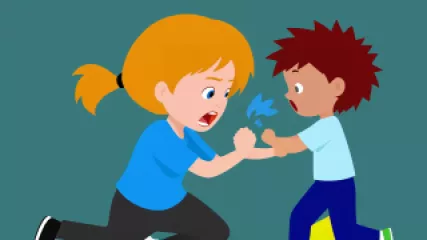10 Effective Ways to Help Kids Cope with Anger
10 Effective Ways to Help Kids Cope with Anger
As parents, we've all been there – our child's temper flares up, and suddenly, we're dealing with a meltdown that feels impossible to manage. Anger is a natural, valid emotion, but when it gets out of control, it can be detrimental to a child's well-being and relationships. Fortunately, there are strategies we can employ to help kids cope with anger in a healthy, constructive way. In this article, we'll explore 10 effective techniques that can make a real difference in supporting children with anger issues.
1. Teach Emotional Awareness
The first step in helping kids cope with anger is to help them become more aware of their emotions. Teach your child to recognize the physical sensations and thoughts that accompany anger, such as a fast heartbeat, clenched fists, or a feeling of frustration. Encourage them to identify and name their emotions, which can give them a sense of control and empower them to manage their reactions.
2. Practice Calming Strategies
Equip your child with a toolbox of calming strategies they can use when they feel anger rising. This could include deep breathing exercises, progressive muscle relaxation, or visualization techniques. Teach them how to take a "time-out" and remove themselves from the situation until they've regained their composure. Regular practice is key to making these strategies effective in the heat of the moment.
3. Foster Healthy Emotional Expression
Encourage your child to express their anger in healthy, constructive ways. This might involve creating an "anger journal" where they can write or draw their feelings, engaging in physical activity to release pent-up energy, or role-playing scenarios where they practice expressing their anger assertively but respectfully.
4. Validate and Empathize
When your child is feeling angry, it's important to validate their emotions and show empathy. Avoid dismissing or minimizing their feelings, as this can make them feel misunderstood and more likely to lash out. Instead, listen attentively, reflect back what you're hearing, and let them know that their anger is understandable and acceptable, even if their behavior needs to be addressed.
5. Establish Clear Boundaries and Consequences
While it's important to validate your child's emotions, it's equally crucial to set clear boundaries and consequences for unacceptable behavior. Explain that while anger is a normal emotion, hurting others or destroying property is not an acceptable way to express it. Consistently enforce these boundaries with age-appropriate consequences, such as time-outs or the removal of privileges.
6. Model Healthy Anger Management
Children learn a great deal by observing the adults in their lives. Make a conscious effort to model healthy anger management strategies yourself, such as taking deep breaths, removing yourself from a heated situation, or communicating your feelings in a calm, constructive manner. This will show your child that anger can be expressed and resolved in a positive way.
7. Encourage Physical Activity
Physical activity can be a powerful tool in helping children cope with anger. Encourage your child to engage in activities like running, swimming, or martial arts, which can help them burn off excess energy and frustration in a healthy way. Exercise also releases endorphins that can improve mood and reduce stress.
8. Provide Outlets for Creativity
Channeling anger into creative outlets can be a highly effective coping mechanism for children. Encourage your child to express their emotions through art, music, writing, or drama. This can help them process and release their feelings in a constructive manner, rather than lashing out.
9. Teach Problem-Solving Skills
Helping children develop problem-solving skills can empower them to address the root causes of their anger, rather than just reacting to the symptoms. Teach your child to identify the problem, brainstorm possible solutions, and evaluate the consequences of their actions. This can give them a sense of control and help them find more positive ways to handle challenging situations.
10. Seek Professional Support
If your child's anger issues persist or escalate, consider seeking the help of a mental health professional, such as a therapist or counselor. They can provide specialized guidance and interventions tailored to your child's unique needs, helping them develop more effective coping strategies and addressing any underlying issues that may be contributing to their anger.
Navigating a child's anger can be a daunting task, but with patience, understanding, and the right strategies, it's possible to help them develop healthy ways of managing their emotions. By incorporating these 10 effective techniques into your parenting approach, you can empower your child to cope with anger in a constructive manner, paving the way for stronger relationships and overall well-being.
Conclusion
Helping kids cope with anger is a crucial aspect of their emotional development and overall well-being. By teaching them to recognize and express their emotions, providing them with calming strategies, and modeling healthy anger management, parents can equip their children with the tools they need to navigate this powerful emotion. Remember, the key is to approach anger with empathy, set clear boundaries, and encourage your child to find positive outlets for their feelings. With patience and consistency, you can help your child build the skills they need to thrive, even in the face of intense anger.






